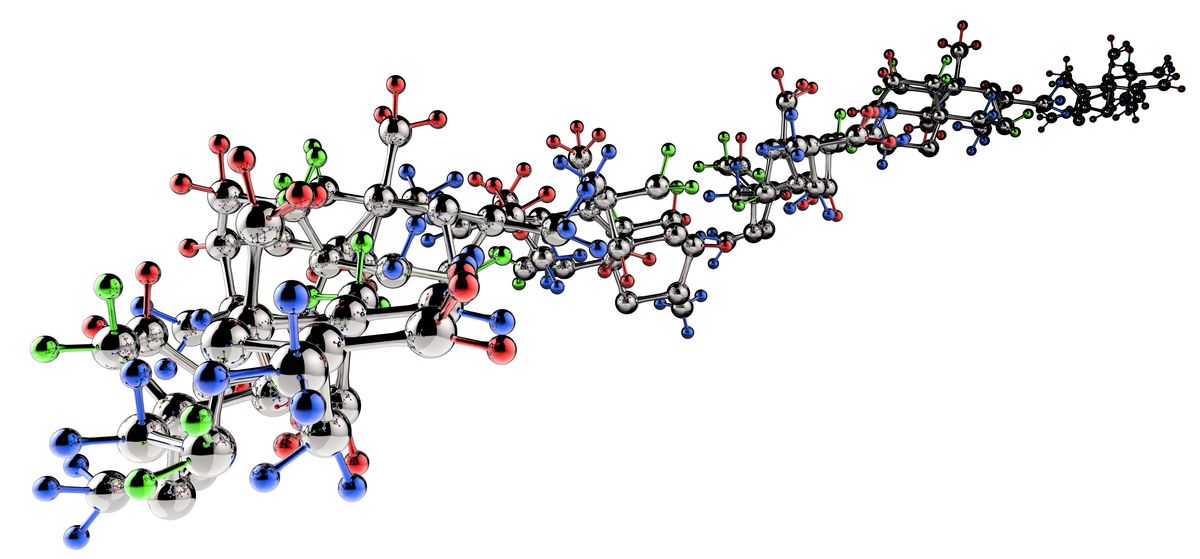The faculty based Center for Molecular Interactions in Biomedicine and Biotechnology investigates how molecules, cells and cell structures interact. Insight into these dynamics represents the core of life sciences and allows to translate them into biotechnology and biomedicine.
Research Environment
The Centre constitutes an integral element of the University's research profile areas „Complex Matter“ and „Molecular and Cellular Communication in Therapy and Diagnostics“ and maintains fruitful cooperations with the Faculty of Chemistry and Mineralogy and the Faculty of Physics and Earth Sciences. Once the Institute of Pharmacy was transferred to the Faculty of Medicine ties with the latter have become even closer. Most research groups of this Centre are members of the Center for Biotechnology and Biomedicine (BBZ) as well. Professorships involved in the Centre enjoy cooperations with extra-faculty institutions in Leipzig. Among these are the Helmholtz Centre for Environmental Research, the Helmholz Institute of Metabolic, Obesity and Vascular Research, the Leibniz Institute of Surface Engineering and the Fraunhofer Institute of Cell Therapy and Immunology.
Focus Topics
This topic focuses on how to develop novel enzymes, bioprocesses and enzyme-substrate complexes and how to better understand enzyme-substrate interactions. We investigate non-standard translation systems to understand plasticity and modulability of gene expression in applications. In addition, we tra to modify translation systems in such a way to incorporate artificial building blocks into proteins through biosynthesis and thereby integrate novel functionalities into proteins.We also try to biochemically modify enzymes, enzyme complexes, microbial cells and cell clusters to make them available for biotechnological applications.
Projects belonging to this focus topic deal with the synthesis of new materials. Also, we endeavor to modify surfaces on the basis of synthetic and natural polymers and bioorganic molecules. We work on new, biohybrid materials and try to integrate active principles from nature into new, innovative materials and technologies. These can be used in the production of new sensor and analysis processes and NanoMicro technology platforms in the biomedical and biotechnological field, but also in environmental diagnostics. Research is also directed towards the fabrication of biomimetic cell culture supports and the development of drug release systems for in vitro and in vivo applications. In addition, we are generating synthetic RNA-based switches and investigating their use as biosensors.
Yet another group of projects takes a closer look at transmembrane receptors and cell adhesion structures. These communicate and interact with cells and tissues and the inner cell. Our researchers characterize the underlying dynamics and create tools to better analyze and describe them. They also investigate how membrane receptors impact a cell's response to external stimuli both under normal and pathological conditions. Insight on currently used drugs is implemented in the development of novel drugs and therapies.
Mid-sized components, i.e. peptides, small proteins and ribonucleic acid, are another object of or our research. They bridge the gap between small - and mainly chemically generated - molecules and antibodies. Researchers generate these mid-sized components using biological and bioorganical methods, and then charactereize and stabilize them for biotechnological and biomedical studies. Mid-sized drugs are also valuable tools for understanding biological processes: they can be coupled with probes that enable biophysical research. The current development of RNA-based corona vaccines shows the great application potential of this nucleic acid. The C-MIBB develops strategies to better understand structure-function relationships of RNA in vitro and in vivo and to enable robust bioinformatic predictions of functional RNA molecules.
Research outlook
The C-MIBB is currently involved with its research work in numerous larger research networks: SFB-TR67, SFB 1052, SFB 1423, DFG FOR 2177 InCheM, SPP 1782, SPP 1782, SPP 1623, Wachstumskern BioSAM, BMBF-BioÖkonomie2030, P4SB Horizon2020. All research groups will continue to actively participate in the establishment of new research networks.
